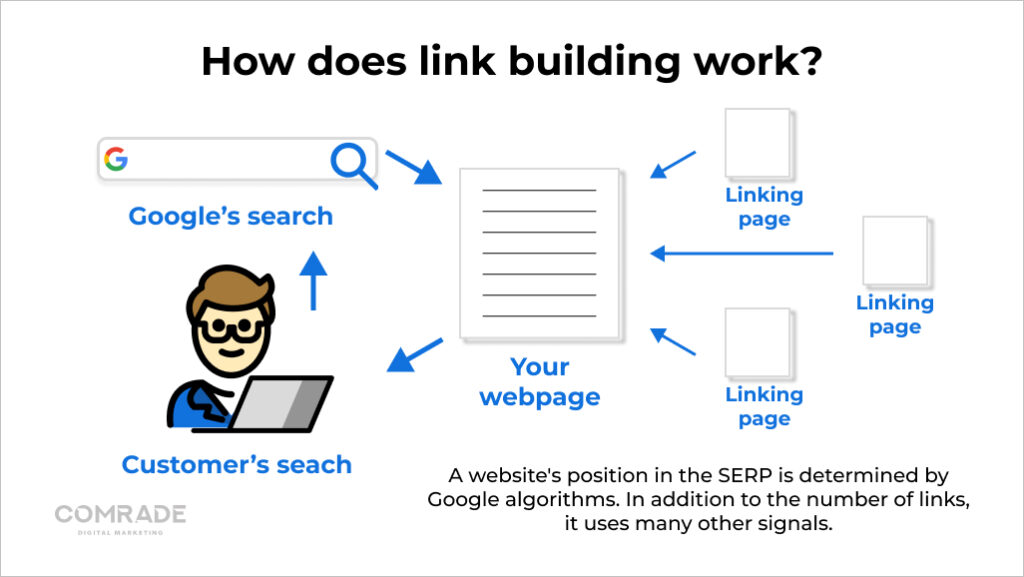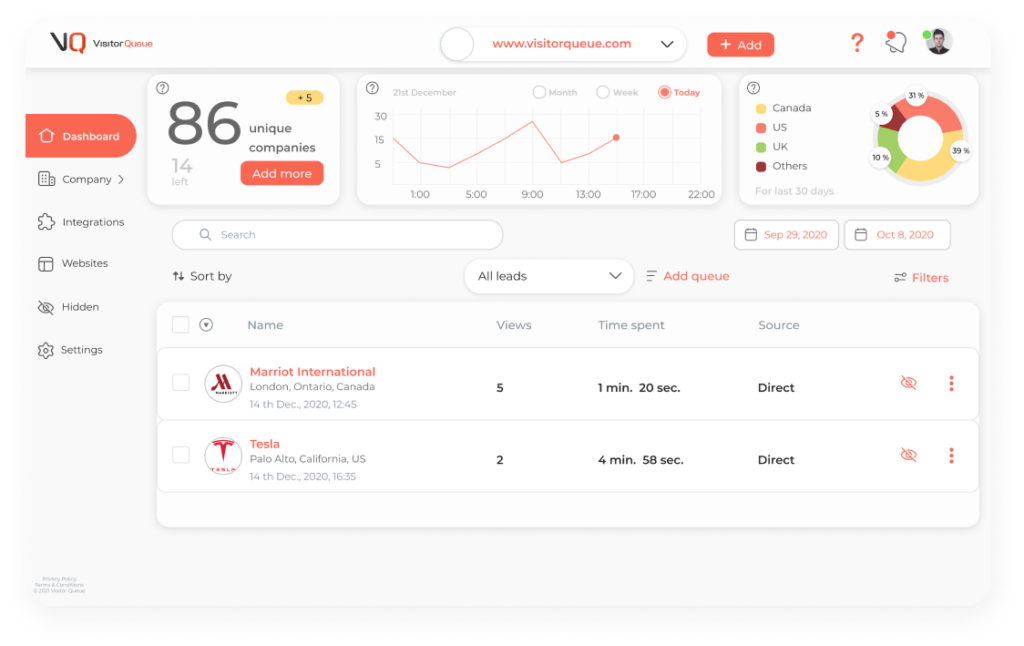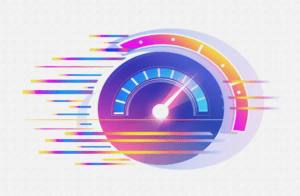Search engine optimization, or SEO, can help increase your website’s traffic exponentially. But, with so many aspects of SEO, it can be difficult to know what improvements you can make on and off your website. When considering what improvements to make, you may consider on-page vs. off-page SEO, and which can help you increase your traffic faster. In this article, we go through what each of these are, and a few of the best ways to implement them. Before we jump into the differences between on-page and off-page optimization, it’s essential to understand the fundamentals of search engine optimization.
Search Engine Optimization 101
SEO is the process of boosting your website’s visibility on search engines, without having to pay for ads. The ultimate goal is to attract organic traffic by aligning your site’s content and structure with the algorithms used by search engines, like Google and Bing. This includes understanding relevant keywords, improving user experience, and leveraging external factors. SEO is an ongoing strategy that can increase your website traffic in the long run. Now that you understand the general idea of SEO, let’s jump into what on-page SEO is.

What is On-Page SEO?
On-page SEO refers to the optimizations that are implemented directly on a website to improve its search engine ranking. This involves refining elements that are within your control. As a result, you can make your website more enticing for search engines. Here are a few of the best ways to improve your on-page SEO.
Keyword Optimization
When we talk about SEO, keywords are one of the popular topics. A keyword is a representation of what your landing page or blog is about, and can help search engines serve up the most relevant content to its searchers. To find the best keywords to use for your website, take a look at what your competitors are doing, and use a tool like Google Keyword Planner or SEMRush to discover relevant keywords.
Metadata
Metadata, including keywords, page titles, meta descriptions, and ALT text can make or break the success of your content. Using compelling metadata that accurately reflects your content can help search engines understand what you’re talking about. And, it can help searchers click through to your page over the competition.
Quality Content
Regularly publishing informative blog posts can establish your website and brand as a valuable and reputable resource. This can encourage search engines to rank your website higher. This also means that your content needs to be authentic. In other words, while AI is a helpful tool, AI-generated content does not rank as well as human-written content. In fact, 94.12% of the time, human-written content outranks AI-generated content.
User-Friendly URLs
Before you hit publish, you’ll want to ensure your URL structure is correct. Choosing a simple and descriptive URL, like /on-page-vs-off-page-seo/, is better than a URL with miscellaneous numbers, letters, and other unnecessary add-ons. This makes it easier for search engines to understand your content, and make your links look more trustworthy.

Website Structure
Your website structure, including load times, page assets, user-friendliness, and more, all contribute to your SEO strategy. If your website provides a poor user experience, there is a good chance that Google will not rank your website in one of the top positions, even if your content is high-quality. The structure of your website can be the most time-consuming and complicated aspect of your SEO strategy.
What is Off-Page SEO?
As the name implies, off-page SEO refers to initiatives that happen off of your website. Off-page SEO can help your website build credibility and authority. It involves tasks that impact your website’s reputation and influence its ranking on search engines. Here are a few of the key components of off-page SEO.
Link Building
Link building is the process of getting other websites to link to pages on your own site. These links that point to your website are also called backlinks. Acquiring high-quality backlinks from reputable websites in your general industry can signal to search engines that your content is a trustworthy source of information. When you are link building, you want to place links strategically. Instead of linking the words “learn more”, you’ll want to link relevant words. When you are exchanging links, it’s crucial to ensure that each link comes from a reputable source and is not spam. By doing this, you can ensure that your website’s authority is not tarnished.

Social Media Engagement
Actively posting on social media, including sharing content and engaging with your audience can help indirectly boost your website’s SEO. While social media isn’t a direct Google ranking factor, it’s great for getting more attention. And, the more people see your content, the more backlinks you’ll probably get.
Online Reviews
Reviews are a great way to help prospects trust your business. Not to mention, Google takes reviews into consideration when evaluating your website’s Expertise, Authority, and Trustworthiness. While these guidelines are not technically a ranking factor, it can affect your position in search results. Google My Business, Yelp, Capterra, and G2 are just a few examples of review sites that can help you get in front of a larger audience.
Local SEO
This form of SEO can count for both on-page and off-page SEO. Local SEO is the process of optimizing your online presence to increase the chances of your website ranking for location-based queries. This can include blog articles, location-based landing pages, and having your location throughout your website including contact pages and footer. But, reviews, online listings, Google My Business profiles, and other forms of external local listings can make a huge difference when it comes to improving your local presence.
Well, Which is Better?
If you had to pick one or the other, on-page is the way to go. Google will always recommend a website that loads quickly, has strong metadata, and overall page structures over one that doesn’t. However, your website will always do better if you implement a variety of different aspects of SEO. By implementing a variety of strategies, you are more likely to reach a wider audience and attract more visitors to your website.
Understanding Your Website Traffic
While Google Analytics can help you see how many website visitors are acquired from organic sources, it only gives you half the story. With the help of Visitor Queue, you can discover the exact company visiting your website, how they were acquired, pages viewed, and how long they spent on each page. This can help you see if you’re attracting the right kind of visitors to your website. Additionally, you can use Visitor Queue to improve your lead generation efforts. Along with the company information and description, we also provide employee contact information like email addresses, phone numbers, and LinkedIn profiles. 98% of website visitors leave your website without contacting you, it’s time to find out who they are. Start your 14-day free trial of Visitor Queue today.

Final Words
As you can see, there’s a lot that goes into building a strong SEO strategy. It can often take months to see results from your implementations, but it can be well worth the effort. While paid advertising can get you to the absolute top of the search results, SEO can get you above the fold, for free. And, the nice thing about SEO is that what you do now, can help your website rank for years to come. As always, if you have any questions about using Visitor Queue to understand your website and generate leads, do not hesitate to reach out.
 Identify
Identify Personalize
Personalize Benchmark
Benchmark Agencies
Agencies Integrations
Integrations Case Studies
Case Studies Use Cases
Use Cases Blog
Blog Resources
Resources









